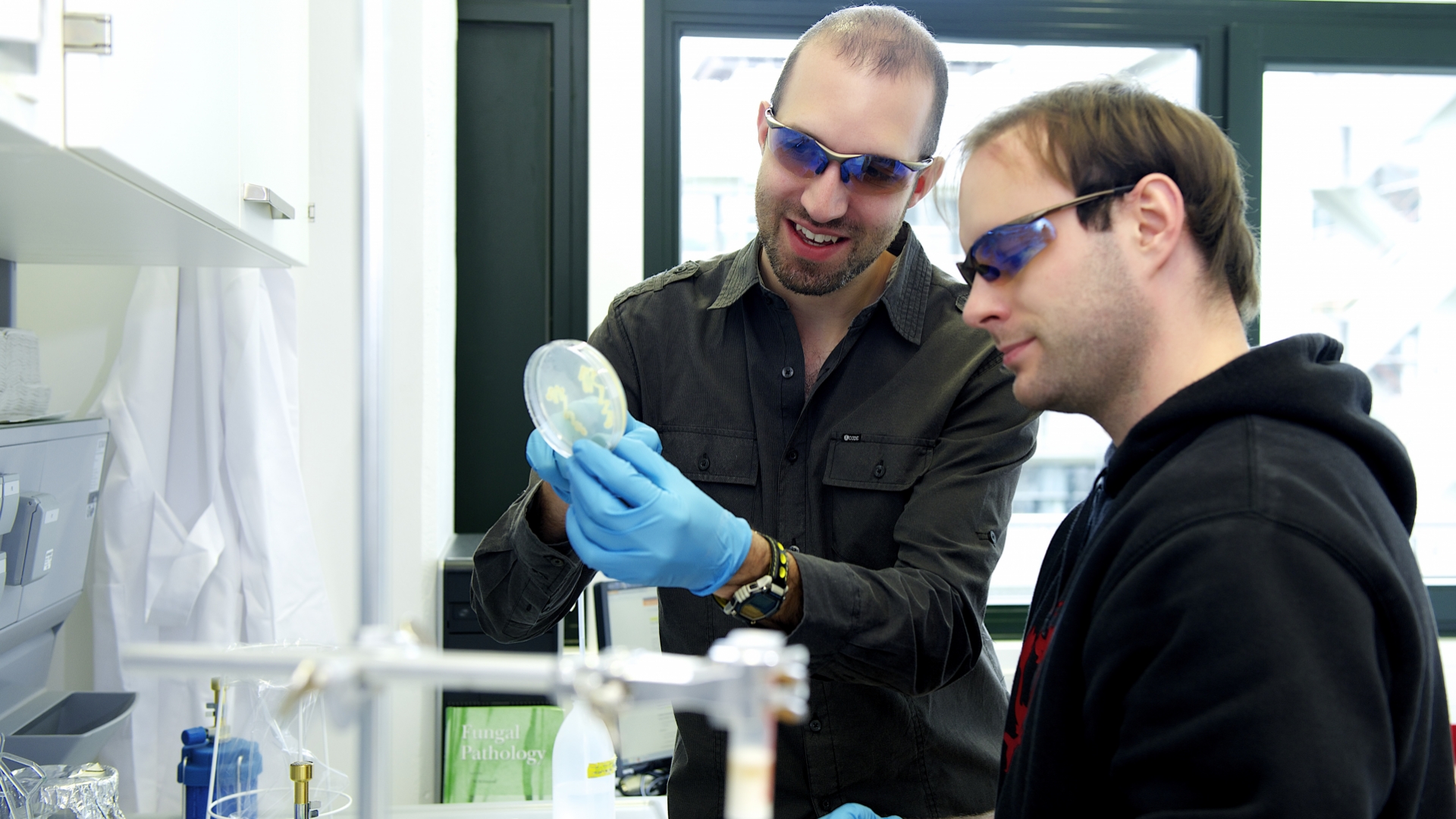
An idea factory
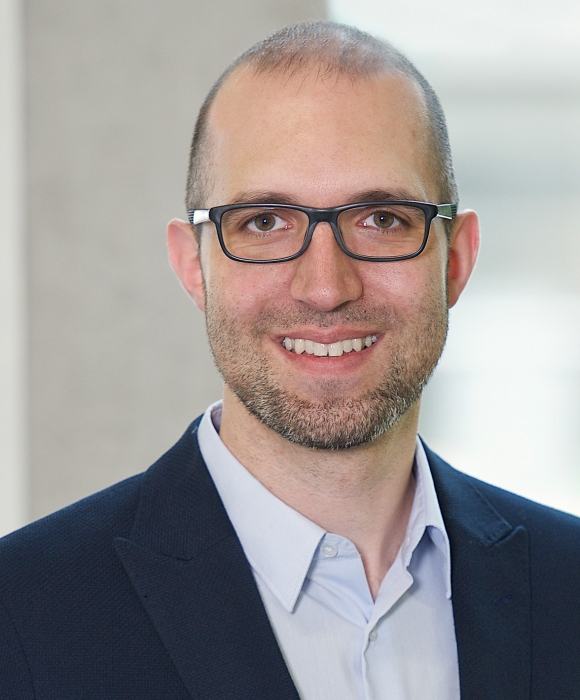
"The Zukunftskolleg provides researchers with a foundation to build their work and career on. Research creativity can only shine through after one has had a couple of years to fully concentrate on his or her work."
While in the United States, chemist Dr Thomas Böttcher chose the University of Konstanz as his next research location. The Emmy Noether scholarship recipient shares with us the role the Zukunftskolleg played in his decision and what the institution does to foster creativity.
I came to the University of Konstanz in 2014 after working as a postdoc at Harvard Medical School in Boston. I had visited several universities in Germany where I planned to continue my career. At the same time, I applied for funding through the German Research Foundation’s Emmy Noether Programme. Konstanz provided the best options for me as an early career researcher. Since I didn’t know whether I would receive the Emmy Noether funding, I needed to have a plan B or even a plan C to fall back on. These options are only viable at universities that offer multiple funding instruments. In the end, it was the diverse opportunities in Konstanz that impressed me the most. Of great interest for me were the SFB 969, the KoRS-CB, the Young Scholar Fund and the Zukunftskolleg, which offers fellowships to early career researchers who have not yet found a permanent position.
If I hadn’t been successful in the Emmy Noether Programme, I would have at least been able to use these options to set up my own, albeit smaller, research team. This made it possible for me to plan more reliably. The day before I had my interview for a five-year Research Fellowship at the Zukunftskolleg, I was notified that I would receive Emmy Noether funding for my research position. The deciding fact, however, is that the Zukunftskolleg also supports early career researchers who have not already secured funding for their own position. This is how the Zukunftskolleg provides researchers with a foundation to build their work and career on. Research creativity can only shine through after one has had a couple of years to fully concentrate on his or her work. If I have to work on one application for funding after another, I simply cannot be as creative as when I have a couple of years of financial security to implement creative research projects.
The close links between the fields of chemistry and biology at the University of Konstanz provides many opportunities for collaborative research. I quickly found my place at the university and set up my research group. During my interview at the Zukunftskolleg, I met Dennis Gebauer, and we agreed: if we get the fellowship, we would pursue an interesting project together. Well, we both got the fellowship, and we decided that together, we would investigate how bacteria can influence the formation of anorganic minerals. Our plans worked out, and I believe that it was our collaboration in this project that allowed us to realize our research aims. At the same time, new collaborations in the fields of biology and chemistry opened up, especially in biology.
I was able to work with Christof Hauck, for example, who has been studying infectious gonococci for quite some time. Together with his research team, we identified an antibiotic substance that we can use to inhibit the growth of these pathogens in an extremely selective way. This substance was found in other bacteria that colonize us humans. We thus investigate how bacteria defend themselves against one another chemically and how we can utilize these substances. In the future, we hope to be able to create customized antibiotics for individualized treatments.
If we had not collaborated with other groups, our research topics would definitely be different – and much of our work would not otherwise be possible. We also have promising projects with Thomas Brunner, Marcus Groettrup and Marcel Leist, which have played a major role in defining our long-term strategy. Since we started our work in Konstanz, we have focused our research more intensively on humans. We not only want to better understand the interactions between humans and microbes as well as between different microbes in the human body, but also how to use synthetic molecules to control these interactions.
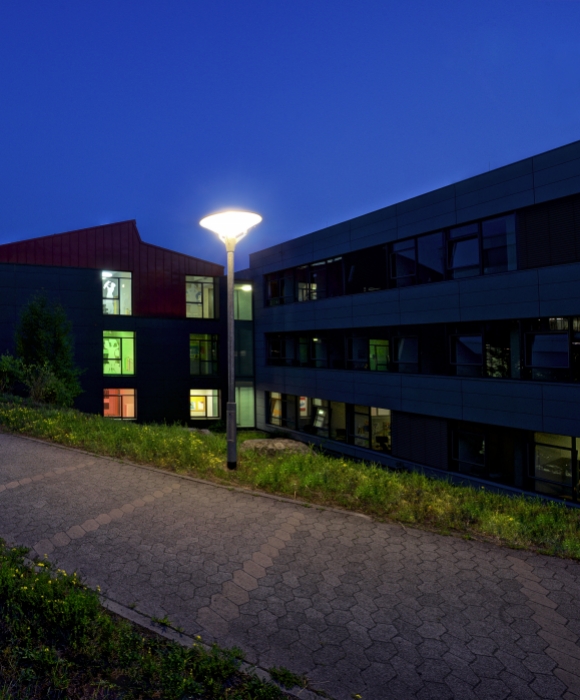
Thomas Böttcher’s research group
Thomas Böttcher’s research group focuses on natural products from bacteria – in particular the chemical signals and metabolites that determine the interactions between bacteria. Thomas Böttcher and his team are thus striving to achieve a better understanding of the chemical interactions between microorganisms in the human body. Another research aim is to chemically manipulate these processes and thus develop new strategies for combating infectious diseases.
The Zukunftskolleg fosters lively interdisciplinary exchange and creativity. At the same time, the Zukunftskolleg Fellows are closely integrated in their respective departments. My laboratories are located in the Department of Chemistry – which is essential for the success of my research. In the Zukunftskolleg, however, a wide variety of different disciplines come together – and researchers find a “second home”. It is great to be able to exchange ideas with researchers from different fields. The regular Jour Fixe meetings provide us with the opportunity to briefly present our own work. This is extremely helpful, as I must first consider how I should explain my scientific work so that someone outside my field can understand it. I need to go about this in an entirely different way than if I were simply explaining my research to others in my department. This is also a very helpful practice for writing funding proposals and communicating with the general public. This interaction also provides me insight into fields I would otherwise never come into contact with. It is very inspiring – an idea factory – a truly one of a kind experience.
Another invaluable aspect of the Zukunftkolleg is its simple procedure for requesting funding for new research ideas. This is how it works: If I have an idea today, I can submit a funding proposal tomorrow to either finance a student assistant or acquire the necessary chemicals and devices I need to implement the idea. This is also how we can launch pilot projects. It is a perfect instrument to try out even risky and seemingly off-the-wall ideas and to provide an incentive for carrying out creative research.
The fantastic conditions for research at the University of Konstanz are the catalyst for shaping our field of research. I am very optimistic about the future and am looking forward to future developments.
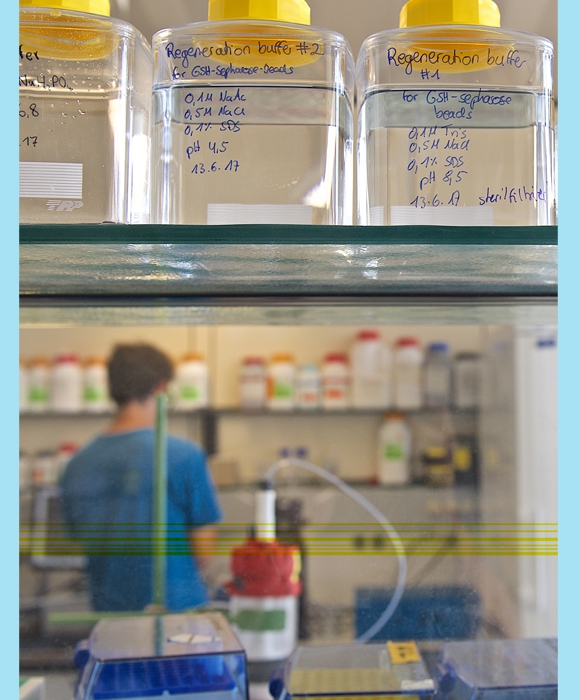
About the facilities
Department of Chemistry
Thomas Böttcher has been a junior research group leader in the University of Konstanz’s Department of Chemistry since 2014. He is a member of the university's Zukunftskolleg and a fellow in the German Research Foundation’s (DFG) Emmy Noether Programme. His research is also funded by the Baden-Württemberg Foundation and the Vector Foundation. In May, he will be awarded the Heidelberg Academy of Sciences and Humanities’ Manfred Fuchs Award for his research excellence. Before coming to Konstanz, he spent three years working as a postdoc at Harvard Medical School in Boston, USA. He founded the start-up AVIRU in Munich and served as its scientific advisor from 2010 to 2014.
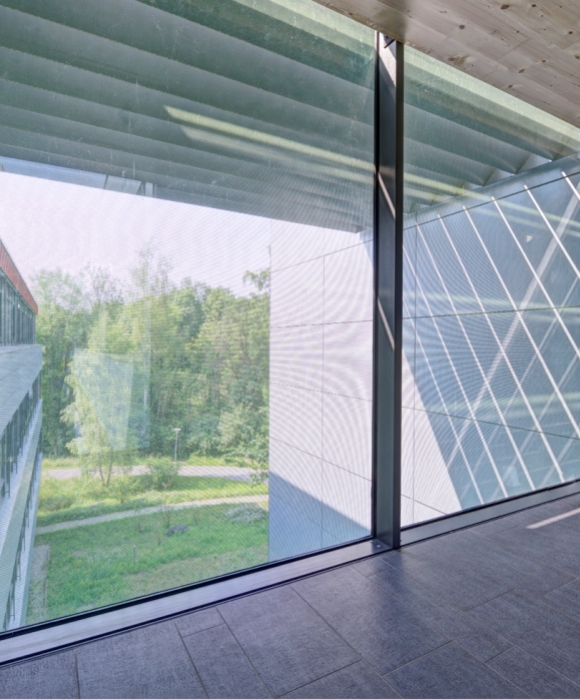
The Zukunftskolleg
The Zukunftskolleg is an institute for advanced studies at the University of Konstanz dedicated to the promotion of early career researchers in any department who have completed their doctorate but have not yet been appointed to a professorship. Its goal is to help advance the careers of early career researchers by providing them a creative, interdisciplinary, international and cross-generational community as well as to ensure the fellows’ academic independence early on. The Zukunftskolleg is funded through the German Excellence Initiative. Since the beginning of 2018, the Hector Foundation II has endowed one fellowship to support top researchers in the mathematics, computer science, natural sciences or technology fields.
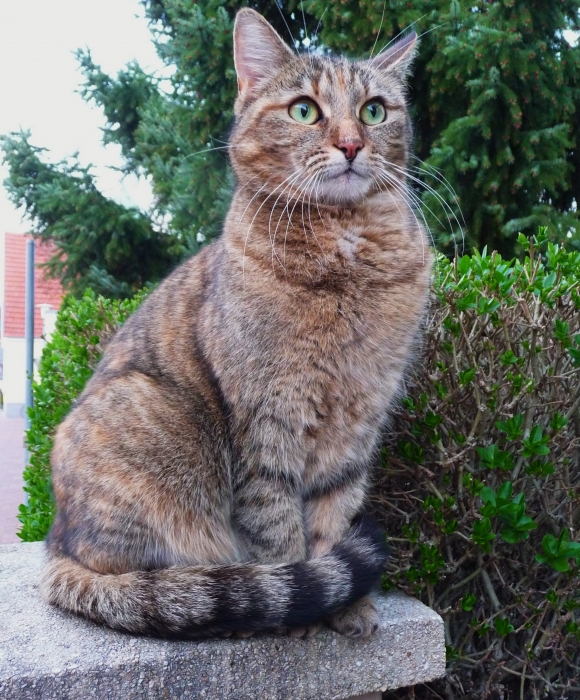
About our series
What exactly is creative research? How can a university foster creativity? And what is the best possible result of combining creative research with creative working conditions. In our series “Creative university – Konstanz creativity”, researchers, staff and students share their perspectives on what makes research and teaching so extraordinary at the University of Konstanz – one of only six German universities whose institutional strategy has been funded in both phases of the Excellence competition.